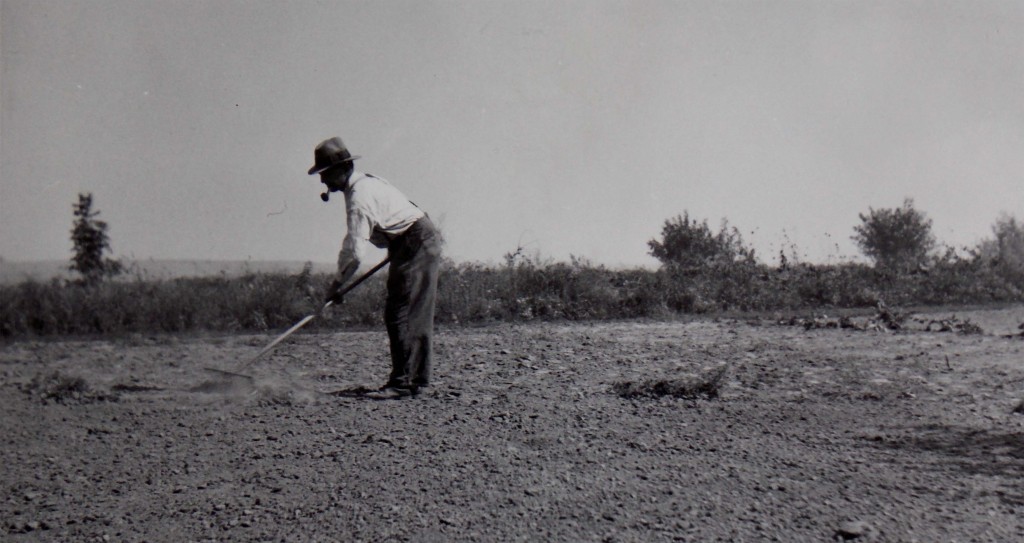Gather a few confirmed environmentalists in any room and give them 90 minutes to get acquainted, and the conversation will inevitably coalesce around one question: What’s the deal with those conservatives?
It is almost impossible for a liberal, especially one who exists almost exclusively with other liberals, to understand why anyone would oppose environmentalism. They ask: “Don’t these people like to breathe?…Don’t they want their kids to drink clean water?”
“Don’t they see that we’re all headed for a collapse?”
Eventually, they’ll shake their collective heads and shrug their shoulders— those poor corporation-loving people. What could they possibly be thinking?
Speaking as someone who has lived around “those people” most of her life, I can give you an idea of what they’re thinking. With the notable exception of wealthy conservatives, who are fewer among the ranks than liberals would like to think, most conservatives are focused on everyday matters. They worry about how much money they need to buy food and how to protect their families from the terrors splashed across the nightly news. They think about how much gas they have in their cars, and whether those cars will be in working condition to drive themselves and their children to work and school in the morning.
Contrary to what we liberals might imagine, for the most part, such people do not spend a great deal of time hating gays, or women, or environmentalists.
When you do hear conservatives spouting off on one of the “hot button” social issues of gays or environmentalists, you can bet that their words are an almost direct quotation from someone they view as an authority: a parent, a pastor, a friend, who has assured them, for example, that many scientists still express doubt about global warming or that fracking is, without question, the most environmentally-friendly form of energy extraction.
This sounds incredibly patronizing, I realize, to suggest that half the country is only repeating what they’ve been told—like kids dutifully reciting to their parents what they’ve learned at school. Which is why I’m not suggesting that half the country is like that. What I’m saying is, the entire country is like that. We just each have our pet “experts.”
I have found myself, in arguments with conservatives, referring a number of times to the “scientific consensus on global warming.” Now, I don’t wear a lab coat to work. I probably wouldn’t recognize a raw statistical data sheet on global meteorological events if it sat on my lap wearing a fedora. But I’m perfectly comfortable trotting out that statement about “scientific consensus” to anyone who challenges me. Why? Well, I have my experts. I know a few people who understand science better than I do, and they have told me that, truly, everyone is in agreement on this fact. All of the journalists I read believe in Global Warming. Also, my mother believes in global warming. Most of my friends believe in global warming. My husband believes in global warming. And I can almost guarantee that my cat believes in global warming, judging by her disdainful reaction to last year’s hot Kansas summer.
My experts are perfectly sure of themselves, and, furthermore, most are sure that anyone who thinks differently must be crazy, stupid, or deliberately ignorant. So who am I to disagree?
But imagine I had grown up in a different family. Imagine I were raised in an environment dominated by conservative, instead of liberal, rhetoric. Imagine my experts were telling me that, in fact, liberals were the crazy, stupid, and deliberately ignorant ones. That so-called “scientific consensus” has undergone hundreds of revolutionary shifts throughout history, with each revolution rendering the previous generation’s “consensus” irrelevant. That the statistical models supporting global warming have been consistently belied by reality, and that those models are currently undergoing re-evaluation as the doomsayers’ predictions have failed to pan out.
For a semester in college, I found myself in such a conservative environment, facing exactly these arguments. I experimented with conservatism, out of curiosity, the way some students experimented with dyeing their hair or learning Frisbee golf. Ultimately, like hair dye, the conservative ideas just weren’t for me, but who’s to say whether that was due to the actual superiority of liberalism’s arguments or to the stronger conditioning of my liberal upbringing? And, to the credit of the people I befriended, I emerged from my semester-long flirtation considerably more aware of the fact that conservatives weren’t stupid at all.
Furthermore, I found that, when I talked with my conservative friends about the environment and about conservation, but divorced the conversation from the language of “environmentalism,” we had a lot of common ground.
Want to alienate a Conservative? Or any poor person, for that matter? Just talk about how much you’d love for gas prices to reach $10/gallon. I have heard more than one environmentalist express this desire, yet it never ceases to surprise me. Sure, it is entirely possible that the environment would ultimately benefit from the economic strife resulting from such prices. Maybe such a dramatic rise in energy costs would force the whole planet into a state of enlightened cooperation with our environment, in which the earth is granted her inalienable right to existence and animals and trees live unmolested by human development.
But I sincerely doubt it. More likely, the giant corporations would use the rise in costs to justify expansion of all forms of energy extraction. Businesses would fire thousands of their employees to compensate for the rise in their transportation expenses. The wealthiest would rejoice over the massive growth in their stock portfolios resulting from the increase in the valuation of energy stocks. And the poor, stranded in their homes, facing higher food costs, and unable to afford the drive to the grocery store, to their work, to their kids’ daycare, would suffer.
Tell a poor person that, as an environmentalist, you love watching gas prices rise, and you will convince that person that environmentalism is not for them.
But there is another case to be made for environmentalism, or a form of it, which I almost never hear. A case that I discovered by talking with conservatives, which arises from the values most central to the conservative heart.
Imagine a small home near the center of a town—any town. The home contains a couple of adults and a couple of kids. Two bedrooms. One bathroom. Under one thousand square feet. In the backyard, a vegetable garden supplies tomatoes, zucchini, carrots, lettuce and cucumbers which are eaten fresh through the summer and then preserved to be eaten through the winter. Next to the garden, a small chicken coop houses a few chickens, who will provide eggs while they are young and then meat when they are older. The children rise each morning and complete a few chores before walking to school. One or both of the adults walk to work, for which they are paid an adequate wage to maintain this modest lifestyle and avoid debt.
Whose life is this? In 1940, it might have been anyone. In 2013, it might be the life of a family of hippie environmentalists, who distrust large agricultural corporations and large banks, and who wish to minimize their energy consumption and avoid passing on to their children the disease of materialism.
Or, equally, it could be the life of a family of conservatives, who look back on their grandparents’ generation as a model of self-reliant and morally upright living, and wish to pass on that wisdom to their children.
What, after all, is more self-reliant and conservative than reclaiming the right to use the rain water that falls on your back yard for the purpose of growing food to feed your family? What is more conservative than producing your own energy, through solar panels or an individual wind turbine? What is more conservative than avoiding unnecessary waste? Than distrusting the large government-subsidied agricultural operations, which put generations of conservative family farmers out of business?
Forget about the big scientific arguments and the climate models. The small town conservatives and the environmentalists should agree on one thing: bigger is not better. The small, meaningful life of connecting with family and friends, and God, is appealing to anyone disenchanted with the shallow trappings of modern life. So why not rely on that common ground as a starting place for communication with conservatives? Environmentalists certainly have more to share with them than we do with the big-business Democrats who parrot meaningless platitudes about the environment while slipping ever more government contracts to their corporate friends.
Let’s try this: instead of just continually talking amongst ourselves—bemoaning endlessly the ridiculous ignorance of conservatives—let’s actually talk to a few of them. It isn’t as though they’re difficult to find. Contrary to what we might believe, most aren’t sitting in corporate boardrooms. They are living across the street and they are bemoaning to each other how those elitist environmentalists just don’t understand the plight of the common man. How hard would it be to start a conversation? Share with them the memories of our grandparents—how they grew up during the Depression, with only their families and neighbors to help them through, and how they surely knew some things that we’ve forgotten. Like the real taste of a tomato. Or how to darn a sock. Haven’t we all forgotten the beauty of that simple life? Let’s help each other remember.
Tonya Stiles is Co-Publisher of the Canyon Country Zephyr.
To read the PDF version of this article, click here.
Don’t forget the Zephyr ads! All links are hot!











This story is interesting! Agree with much of it, but have my own cranky viewpoint.
Which is: I think throughout human history what we call the conservative outlook on life, that paradoxical blend of day-to-day pragmatism and spirituality, has typically furnished the best guidance, and has been well worth passing down from generation to generation.
What we call liberalism, by contrast, relies on sources of knowledge, namely science and rationalism, that are less than 500 years old. The strength of liberalism, again in my view, is that in broad, rational matters it really does have better informed experts. An important weakness, however, is the tendency of liberals to be unwisely dismissive of the older, archetypal ways of knowing.
But neither conservatism nor liberalism seems able to cope with climate change, because it’s just too huge. Neither gives us conceptual buckets to put our thoughts about the Big Heat in.
So I’m no longer a liberal or an environmentalist. I do still have a a driver’s license with my picture on it. That’s how I know who I am.
Well presented view point. I have felt since the beginning of the debate about weather that it really doesn’t matter what is causing it. What matters is that it’s happening. There is no question that glaciers are melting. No question that weather patterns are wilder and storms more extreme. What does matter is what we do to protect ourselves and the future of mankind.
Tonya’s article does a great deal to point out the similarities between liberals and conservatives. When the rhetoric stops and the real discussion begins the desires are much the same. Take away the blame and begin the quest for answers and responses to reality and the party lines melt away. Great article.
time to somehow get Tonya Stiles into the mainstream media–one of the problems with communicating from what I’ll call the “radical middle”, seeing and appreciating to some degree all sides of a story, as does the Zephyr, is that the message goes only to the believers (those of us who subscribe & read the Z). Outside this community of readers, the Z is likely viewed as radical left-wing environmentalism (except by actual radical left-wing environmentalists). So how do we get the “critical middle” out there? Would “Writers On The Range” be a start? Tonya, thanks for the thoughtful analysis.
In response to question “What’s with those conservatives?”
Once upon a time there was a beautiful mountain forest, planted in rich, dark soil by one with magnificent seeds. It was the envy of all the world. Like any forest, it had its pine bark beetle attacks, and it was nicked up by lightning strikes from time to time. The forest keepers maintained it well and kept the forest floor neat and clean to remove potential fuel hazards that could enable forest fires to grow out of control. The forest flourished for hundreds of years. Sturdy, towering stands of Ponderosa pines, Douglas fir, spruce, aspen, birch, and other trees prospered in the forest. The beautiful forest produced plentiful harvests and was used and adored by many people.
Then several decades ago, some forest keepers planted a new tree on sandy, unstable ground in a side canyon running down below the forest. The tree grew for several years, but eventually its health declined. Nearby weeds drew rich nutrients away from this tree, but the keepers saw no need to beat back the weeds to maintain the health of the tree. Many of the keepers perished from the unhealthy state of their canyon dwelling. Surviving keepers were envious of the forest keepers. They began asking at first, then demanding the forest’s keepers come to worship their tree. They claimed there was nothing special about the forest, its rich soil, or its amazing planter, and stated the debate is over, the issue settled. They claimed that all trees were equal, but some – theirs – was more equal than others. Growing more and more angry, the tree keepers began to denigrate and attack the keepers of the beautiful forest, demanding they abandon the forest and pledge allegiance to their sickly tree. They claimed the forest was merely the result of accident and chance. The forest keepers said to the tree keepers, “Come join us on solid ground, there is a bounteous treasure for all here in our beautiful forest.” The tree keepers arose in righteous indignation and attacked the forest keepers, bringing many of them down. More and more tree keepers ventured into the forest to fell its most enduring, healthy trees, and eventually the forest’s health and survival came into question. The forest keepers’ complaints fell on deaf ears, and in time the mountain forest and the canyon were both in bad shape and struggling mightily.